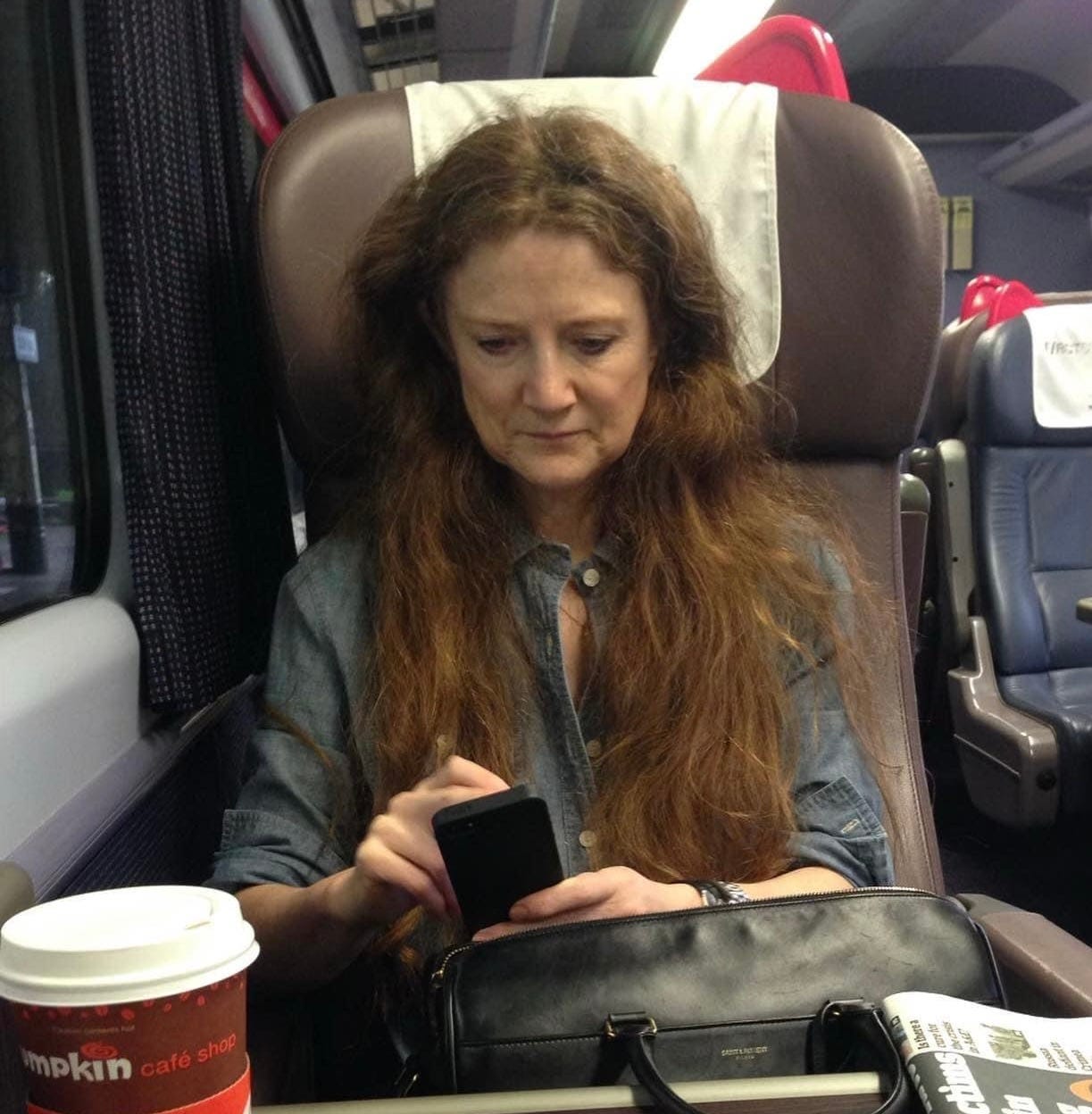The picture that prompted a life change
I hate this photograph, but I owe it an enormous debt

We all have one. At least one. A picture that tells us more truths about what was going on in our lives at that moment than any number of interventions from family, friends, lovers or colleagues could ever do. (Well, they could, but would we listen? I think not.)
This is one such picture. I hate it. I was 46 but I looked decades older. The jowls. The bags. The way my face folds in creases around my clenched jaw. Portrait of a stressed woman.
It was taken (without my knowledge, I would have kicked up a stink) on a train by my husband, J, around the end of my tenure at Red. I’m not sure if it was pre- or post- breakdown. Pre, probably, as I’m radiating tension. It wasn’t my first breakdown. Not that I would ever have used that word then. Much too loaded. But even then I wasn’t prepared to admit that I needed to listen to my body and JUST BLOODY STOP. So, my body made me.
I was a classic wellness refusenik – gleefully dismissive of anything with a whiff of “woo-woo”. I found out the hard way that you ignore your own wellbeing at your peril.
Long before The Shift found its way to Substack, one of the first pieces I ever wrote for this newsletter revisited this experience. I wanted readers to know the cost of busy busy busy; what was really going on behind the Instagram of fashion shows and flowers and awards. But, also, I wanted to force myself to look it in the face, to remind myself to never go back.
As The Shift with Sam Baker celebrates its first birthday on Substack and its second out in the world, I thought I’d share this piece again. It went down a storm with the handful of people who read it back in June 2022 and, well, it never hurts to remind yourself what happens if you let yourself get subsumed by the cult of comparison, ambition and, let’s be honest, professional envy. I’d love to know what you think.

